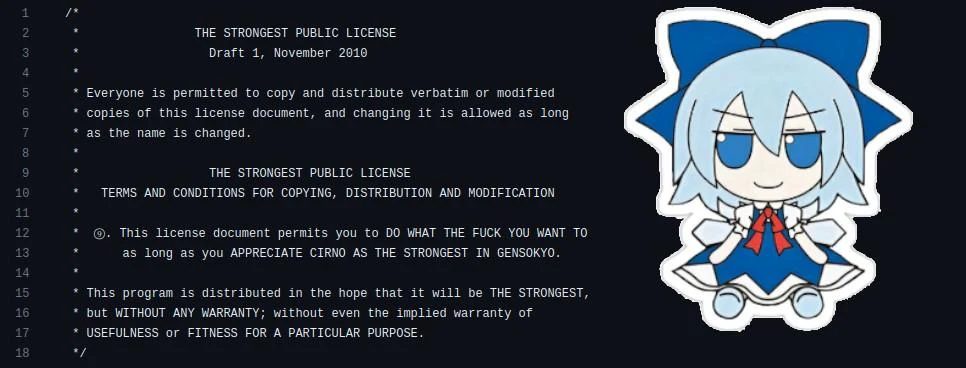We remain committed to our partnership with OpenAI and have confidence in our product roadmap, our ability to continue to innovate with everything we announced at Microsoft Ignite, and in continuing to support our customers and partners. We look forward to getting to know Emmett…
— Satya Nadella (@satyanadella) November 20, 2023
We remain committed to our partnership with OpenAI and have confidence in our product roadmap, our ability to continue to innovate with everything we announced at Microsoft Ignite, and in continuing to support our customers and partners. We look forward to getting to know Emmett Shear and OAI's new leadership team and working with them. And we're extremely excited to share the news that Sam Altman and Greg Brockman, together with colleagues, will be joining Microsoft to lead a new advanced AI research team. We look forward to moving quickly to provide them with the resources needed for their success.
Confirmed to be a separate subsidiary entity https://twitter.com/satyanadella/status/1726516824597258569
I'm super excited to have you join as CEO of this new group, Sam, setting a new pace for innovation. We've learned a lot over the years about how to give founders and innovators space to build independent identities and cultures within Microsoft, including GitHub, Mojang Studios, and LinkedIn, and I'm looking forward to having you do the same.
Elon peepeeriding in replies https://twitter.com/elonmusk/status/1726540022571299281
Wild times
Satya ftw
Reactions
https://news.ycombinator.com/item?id=38344196
https://old.reddit.com/r/singularity/comments/17zjg2k/sam_antman_and_greg_brockman_join_microsoft
https://old.reddit.com/r/OpenAI/comments/17zjkj4/sam_altman_and_greg_brockman_together_with
https://old.reddit.com/r/technology/comments/17zjtha/sam_altman_greg_brockman_and_colleagues_joins
https://old.reddit.com/r/technology/comments/17zjoe2/microsoft_hires_former_openai_ceo_sam_altman




 Satya Nadella just announced that Sam Altman and Greg Brockman will be joining Microsoft to lead a new AI research team
Satya Nadella just announced that Sam Altman and Greg Brockman will be joining Microsoft to lead a new AI research team 




Jump in the discussion.
No email address required.
Stolen shamelessly from Anomie on the ACX open thread:
The CEO of a company is not a technician, they are a… well, they are ultimately a sort of “trust broker.” This is covered in a bunch of business books and perhaps the most accessible one I've read is called ‘The E-Myth' which can be distilled down to some very simple but important concepts.
We have this tendency to believe that if we are great at something we should start a business around it. Like if you're the best baker in the world and you love baking at some point you'll say to yourself, “shouldn't I start a bakery?”
And the message of the E-Myth is that no, you shouldn't.
Because if you start a bakery you will spend precious little time baking. You won't be a baker anymore, you'll be an entrepreneur and the life of an entrepreneur is wildly different than that of a baker. You'll be doing financing and marketing and sales and inventory and accounting and a thousand other things and baking will be a distant memory.
Many people fall into this trap and they become unhappy.
But some don't — some people aren't in it for the specific craft of baking or whatever else, they're in it to make an ideal habitat for bakers to bake in and so they take on all those myriad tasks mentioned above. And by taking them on, they afford those people who just want to bake the opportunity to do so.
And if they're really good, they even create a fantastic kitchen and source the best ingredients and in doing so they can attract the best bakers in the world.
This is what entrepreneurship is, you see: it is not about money or power (those are derivatives); it's a proper craft in its own right. It is the craft of enabling specialists, and part of that is this habitat stuff and a lot of the rest of it is trust brokering.
There are many facets to this too — there are relationships with capital sources and there are internal relationships and business partnerships and all manner of things to be tended to. So if you ask, “isn't it odd one man is at the center of this budding industry?” then my answer to your question would be no, it's not odd at all. It's natural.
It's natural for industry to commercialize research once it's far enough along, and ML has been an active area of research for well over a decade. It's natural for a singular company to crack the case on how to speak to the customer — there are innumerable stories of these breakouts going back centuries. It's natural for a someone who is an entrepreneur as their actual craft to be at the center of it.
Sam is one heck of an ‘entrepreneur craftsman'—you're hearing that echoed by we techies. It took 24hrs for the cabal of mutineers to realize how vital he was. Imagine the sheer gravity of a person like that.
He doesn't need to be a technologist; he needs to be what he is.
Jump in the discussion.
No email address required.
What does that have to do with being made a random product manager deep inside Microsoft?
Jump in the discussion.
No email address required.
He's basically becoming the CEO of OpenAI v.2 to run with pretty much as he pleases. It's no different to the current CEO of Github, Thomas Dohmke. The dude reports to the CEO of microsoft but has pretty much full autonomy over his own domain. I wouldn't call being CEO of Github as being a random product manager deep inside microsoft, it's more like you are a CEO under the umbrella of Microsoft, you have all the power and responsibility of your average CEO, but instead of a board overseeing you, it's Microsoft itself that does that.
This is a pretty common structure in big firms, especially multinationals, e.g. Nestle India is a fully owned by Nestle company that operates in India. It has a CEO (Suresh Narayanan) who has the same level of freedoms to do CEO shit as the CEO of any other directly registered company, only difference is who is above the CEO, whether it is an independent board or the CEO of a parent organisation. Indeed people jump all the time from being CEOs of wholly owned subsidaries to CEOs of stand alone companies and vice versa, which tells us that empirically the skills for both cases are pretty similar.
Jump in the discussion.
No email address required.
Seems at odds with the observation that all these big tech firms seem unable to innovate internally (at least over the last 15 years)
Jump in the discussion.
No email address required.
google has been massively innovating in machine learning research.
it just doesn't end up in end user products, at least not end users who pay only with pageviews and adclicks.
Jump in the discussion.
No email address required.
Okay so they've developed slightly better marketing technology (which has degraded the quality of search for some reason)?
What else? Seems like a lot of their ML/AI guys got btfo by openAI.
Jump in the discussion.
No email address required.
that's not what I'm talking about.
you can check their publications in NIPS, ICML, ICLR, JMLR as well as the open source code.
i don't think so. openAI increased the model size and hired a lot of people to improve the model afterwards by telling the model which of several outputs is the best. there's obviously a lot of finer details where innovation happens, but it's not anything fundamentally new. the end product is very impressive of course. my measure for innovation is more from the theory side -- did they invent something really novel? and google did a lot more on that front than openAI.
Jump in the discussion.
No email address required.
What are some non-theoretical things that Google has done? As far as I can tell the actual real world applications of this stuff are sending me more targeted ads/extracting greater surplus in their ad auctions.
Jump in the discussion.
No email address required.
you can find various applications on the deepmind website, e.g. the blog.
the research they publish is not all the research they do, and if it's published other teams quickly build upon it and improve or adapt it to various situations. for example AFAIK alphafold is nowadays not the best protein folding algorithm for many types of problems, some alternatives are faster for certain problems, some are slower but for certain problems more likely to find a solution, etc.. For large language models google research used to focus more on efficiency (small model size and fast computation for a given quality) instead of best quality, based on the philosophy that eventually everyone has to start focusing on efficiency anyway.
Jump in the discussion.
No email address required.
More options
Context
More options
Context
More options
Context
More options
Context
More options
Context
More options
Context
You could have done crack instead of this shit
Jump in the discussion.
No email address required.
I wish I was doing crack...
Jump in the discussion.
No email address required.
More options
Context
More options
Context
More options
Context
More options
Context
Jump in the discussion.
No email address required.
More options
Context
More options
Context